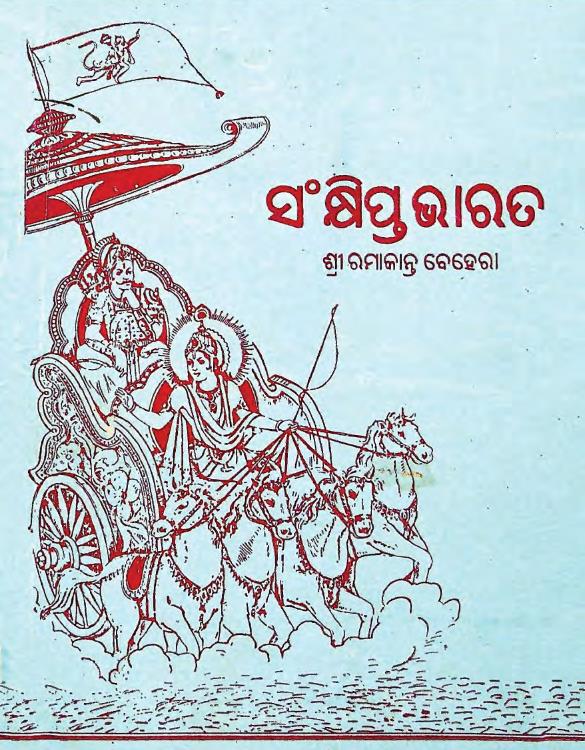In the vibrant landscape of Odia literature, Kabya Samkshipta Bharat by Ramakant Behera, published in 1989, stands as a remarkable rendition of India’s epic narrative—the Mahabharata. This work intricately condenses the epic’s vast expanse into a poetic framework, making it accessible without sacrificing the profound essence of the original tale.
The Mahabharata, traditionally recognized as one of the longest epics in the world, weaves a complex tapestry of human emotions, moral dilemmas, and cosmic battles. It chronicles the story of two cousins, the Pandavas and the Kauravas, who engage in a legendary struggle for power. Behera’s rendition captures these themes while distilling the essence of the narrative into a concise poetic format, allowing readers to experience the epic’s core events and moral teachings in a contemporary context.
One of the central events in the Mahabharata is the infamous dice game—an episode that symbolizes manipulation, deceit, and the turning point of the Pandavas’ fate. Behera skillfully illustrates the pivotal moments of this game, where Yudhishthira, the eldest Pandava, gambles away his kingdom, his brothers, and even his wife, Draupadi. Through his poetic lens, Behera emphasizes the tragic irony of this game; a single decision driven by hubris leads to catastrophic consequences, showcasing the fragile nature of fortune.
Following the dice game, the exile of the Pandavas forms another critical segment of Behera’s narrative. This phase serves as a crucible for the characters, testing their resilience, integrity, and ability to overcome adversity. Behera articulates the pain of separation and loss, painting a poignant picture of endurance as the brothers navigate their years in the forest. The exile period is not merely a backdrop of suffering but also a time for introspection, growth, and the forging of unbreakable bonds among the brothers.
The poetic form allows Behera to explore characters’ internal struggles and ethical dilemmas deftly. Each character in the Mahabharata represents facets of human nature—Dharma, greed, vengeance, and compassion. Behera’s succinct verses encapsulate these complexities, urging readers to reflect on their own lives and the moral choices they face. For instance, Draupadi’s humiliation in the Kaurava court evokes strong feelings of injustice and serves as a critical turning point that propels the narrative toward inevitable conflict.
In Kabya Samkshipta Bharat Behera does not simply retell the Mahabharata; he also invites readers to engage with its themes actively. The choices the characters make resonate with contemporary society, where moral dilemmas and the consequences of our actions remain ever relevant. By bridging the gap between ancient narratives and modern experiences, Behera ensures that the Mahabharata, through his poetic condensation, remains a living text that continues to inspire introspection and dialogue.
In conclusion, Ramakant Behera’s Kabya Samkshipta Bharat encapsulates the richness of the Mahabharata in 500 verses, offering readers a fresh lens through which to appreciate this timeless epic. With its focus on the dice game and the subsequent exile of the Pandavas, Behera successfully captures the essence of human struggle, morality, and the continuing relevance of these ancient stories in the modern world.
Books Info
| Books name | Samkshipta Bharat/ସଂକ୍ଷିପ୍ତ ଭାରତ |
| Author | Ramakant Behera |
| No Of pages | 105 |
| Publisher | Sri hadibandhu |
| Publication | 1989 |
| Printed At | Arnapurna Prints |
| Distributor | NA |

